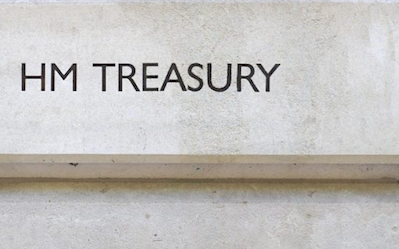The International Monetary Fund (IMF) warned the UK’s Conservative government on Tuesday not to cut taxes in the run-up to the UK general election that is expected later this year amid high levels of government debt and growing demands on the UK’s services.
The warning from the IMF’s chief economist Pierre-Olivier Gourinchas came after the body also cut its forecast for UK economic growth next year.
“We would advise against further discretionary tax cuts … ” said Gourinchas said in response to a question from a journalist.
He cited growing demands for health and social care, education and environmental investment.
“It’s very important to have in place medium-term fiscal plans that accommodate these pressures, at the same time as ensuring that debt dynamics remain stable and contained,” Gourinchas said.
UK finance minister Jeremy Hunt cut payroll taxes and made permanent a tax break for business investment in November.
Earlier on Tuesday, Hunt also said he would like to make further tax cuts in the annual budget statement due on March 6.
“It is too early to know whether further reductions in tax will be affordable … but we continue to believe that smart tax reductions can make a big difference in boosting growth,” said Hunt.
The IMF forecasts show UK gross domestic product growth picking up from 0.5% in 2023 to 0.6% in 2024 and 1.6% in 2025.
In November, the UK’s Office for Budget Responsibility forecast 0.7% economic growth for 2024 and 1.4% for 2025.
The IMF’s estimate for 2025 is 0.4 percentage points below a previous estimate made in October, reflecting “reduced scope for growth to catch up in light of recent upward statistical revisions to the level of output through the pandemic period.”
On January 25, a report from UK’s Institute for Fiscal Studies (IFS) warned the next UK government is likely to face “some of the most difficult economic and fiscal choices the UK has faced outside of pandemics, conflicts and financial crises.”
The IFS said: “Those seeking our votes should level with the electorate about how they will confront them.”
The IFS report said a combination of high interest payments on the UK government’s elevated £2.685 trillion of debt and low expected growth is forecast to make it more difficult to reduce debt as a fraction of national income than in any parliament since at least the 1950s.
On January 23, the UK’s Office for National Statistics (ONS) said UK central government borrowing in the financial year-to-December 2023 was £119.1 billion, £11.1 billion more than in the same nine-month period the previous year and the fourth-highest financial year-to-December borrowing on record.
The ONS said the UK’s borrowing is forecast to reach £123.9 billion by the end of the financial year.
The ONS said the UK’s public sector net debt excluding public sector banks was £2.685 trillion at the end of December 2023 and was provisionally estimated at around 97.7% of the UK’s annual gross domestic product (GDP). This is 1.9 percentage points higher than in December 2022 and remains at levels last seen in the early 1960s.
